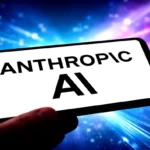Quantum computing represents a revolutionary shift in computational power, promising to solve problems currently intractable for classical computers. By leveraging the principles of quantum mechanics, quantum computers can process vast amounts of data simultaneously, potentially transforming industries ranging from cryptography to pharmaceuticals. This article explores the evolution of quantum computing, its underlying principles, and the potential impact it could have on the future of technology and science.
Understanding Quantum Computing
Quantum computing is a type of computing that uses quantum bits, or qubits, to process information. Unlike classical bits, which can be either 0 or 1, qubits can exist simultaneously in multiple states due to superposition and entanglement principles. It allows quantum computers to perform complex calculations at unprecedented speeds.
Principles of Quantum Mechanics
Quantum computing is built on two key principles of quantum mechanics:
- Superposition: While classical bits can represent a single binary state (0 or 1), qubits can represent multiple states simultaneously. This capability allows quantum computers to perform many calculations simultaneously.
- Entanglement: Entanglement is a phenomenon where qubits become interconnected in such a way that the state of one qubit instantly influences the state of another, no matter the distance between them. This interconnectedness enables quantum computers to process and analyze complex data sets more efficiently than classical computers.
Quantum Gates and Circuits
In quantum computing, operations on qubits are performed using quantum gates, the equivalent of classical logic gates. These gates manipulate qubits through quantum circuits, enabling the implementation of quantum algorithms that can solve problems far beyond the reach of classical computers.
Drivers of Quantum Computing Development
The development of quantum computing is driven by the need to solve complex problems in various fields and by the limitations of classical computing.
Overcoming the Limits of Classical Computing
As classical computers approach their physical and theoretical limits, quantum computing offers a potential path forward. Certain problems, such as simulating molecular interactions or optimizing large systems, are infeasible for classical computers due to the sheer amount of processing power required. With their ability to process multiple possibilities simultaneously, Quantum computers offer a solution to these challenges.
Advancements in Cryptography
Quantum computing poses both opportunities and threats to cryptography. While it could break many cryptographic algorithms that currently secure digital communications, it also has the potential to create new forms of quantum encryption that are virtually unbreakable. This dual potential is driving significant research and development in quantum cryptography.
Breakthroughs in Medicine and Chemistry
Quantum computing could revolutionize medicine and chemistry by enabling the precise simulation of molecular structures and interactions. This capability could lead to the rapid development of new drugs and materials, reducing the time and cost of bringing new therapies and technologies to market.
Financial Modeling and Optimization
The finance industry benefits from quantum computing’s ability to process vast amounts of data and optimize complex systems. Quantum algorithms could be used for risk analysis, portfolio optimization, and market forecasting tasks, providing financial institutions with a significant competitive advantage.
Challenges in Quantum Computing
Despite its potential, quantum computing faces several significant challenges before it can reach widespread adoption.
Technical Complexity
Building and maintaining quantum computers is technically challenging. Qubits are extremely sensitive to environmental factors, such as temperature and electromagnetic radiation, which can cause calculation errors. Ensuring the stability and reliability of qubits is a major hurdle in developing practical quantum computers.
Error Correction and Decoherence
Quantum computers are prone to errors due to decoherence, a phenomenon where qubits lose their quantum state due to environmental interactions. Developing efficient quantum error correction techniques is essential to making quantum computers reliable and scalable for practical applications.
Scalability
Current quantum computers are still in their early stages, with most systems containing only a few dozen qubits. To solve real-world problems, quantum computers will need to scale up to thousands or millions of qubits, a goal that requires significant advances in quantum hardware and architecture.
Resource Intensive
Quantum computing requires highly specialized resources, including cryogenic systems, to keep qubits near zero temperatures. The infrastructure and energy demands of quantum computers present significant challenges in terms of cost and practicality.
Future Directions of Quantum Computing
The future of quantum computing is both promising and uncertain. While significant progress has been made, much work remains to be done before quantum computers become mainstream.
Quantum Supremacy
Quantum supremacy refers to the point at which a quantum computer can perform a calculation impossible for any classical computer to solve in a reasonable timeframe. Achieving quantum supremacy is a key milestone in the development of quantum computing and has been a focus of research in recent years. In 2019, Google’s quantum computer achieved quantum supremacy for a specific problem, marking a significant milestone in the field.
Hybrid Quantum-Classical Systems
We will likely see the development of hybrid quantum-classical computing systems in the near term, where quantum processors are used alongside classical computers to tackle specific tasks. These systems could leverage the strengths of both types of computing, making quantum computing more accessible and practical for a wider range of applications.
Quantum Internet
Another exciting possibility is the development of a quantum internet, which would use quantum signals to transmit data securely over long distances. Such an internet would offer unparalleled security for data transmission and could revolutionize fields such as banking, healthcare, and national security.
Democratization of Quantum Computing
As quantum computing technology advances, there is a push to make it more accessible to researchers, developers, and businesses. Cloud-based quantum computing platforms, such as those offered by IBM, Google, and Microsoft, allow users to remotely run quantum algorithms on real quantum hardware. This democratization of access is accelerating research and innovation in the field.
Conclusion
Quantum computing can revolutionize how we process information, solve complex problems, and understand the world around us. While the field is still in its infancy, the progress made so far suggests that we are on the brink of a new era in computing. As researchers continue overcoming technical challenges and exploring new applications, quantum computing could become an integral part of our technological landscape, driving innovation across industries and transforming how we live and work. The journey of quantum computing is just beginning, and the discoveries that lie ahead promise to reshape our understanding of what is possible in computation.





